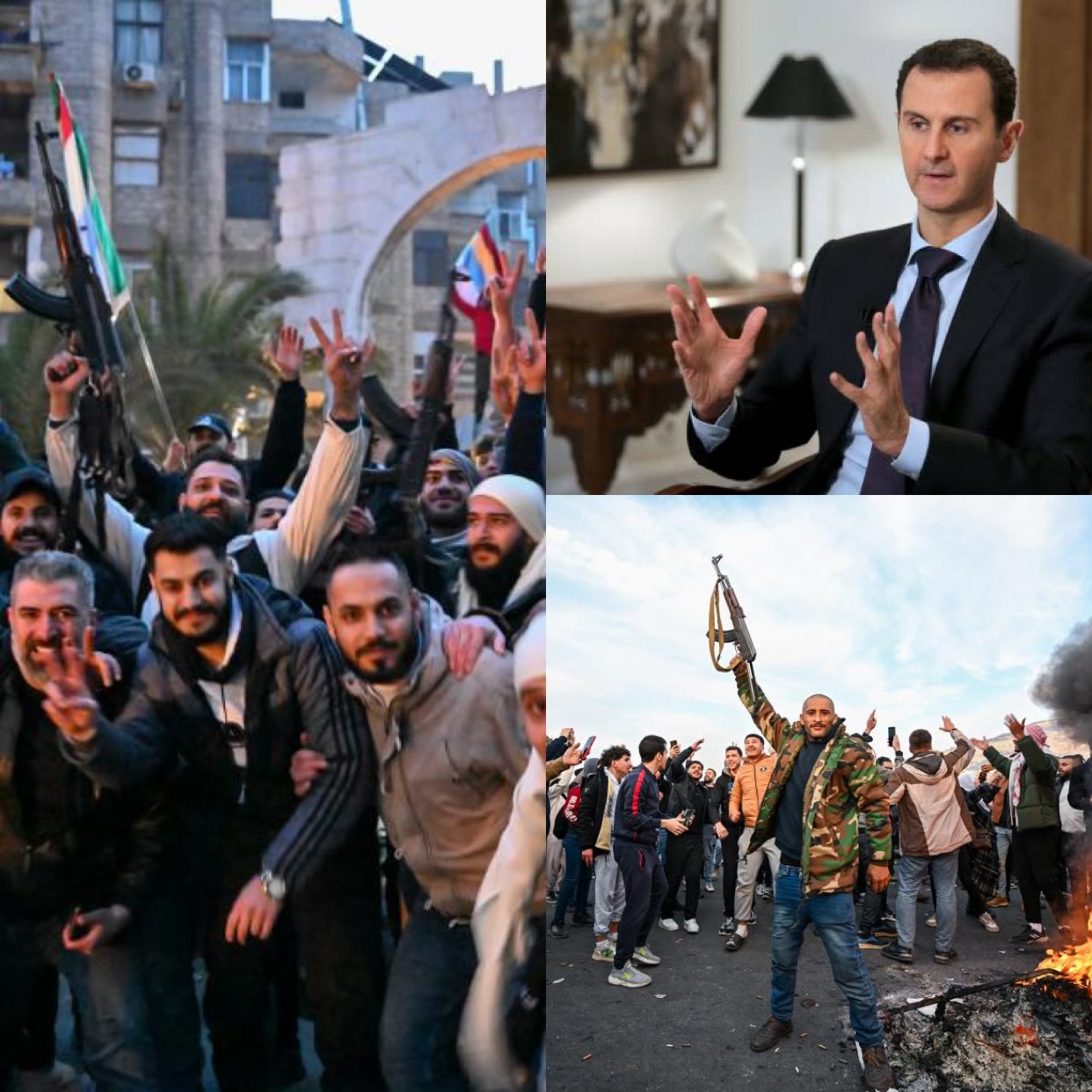
The regime of Bashar al-Assad, the Syrian President, who has been in power for 24 years, has fallen.
On Sunday, December 8, rebel fighters declared the Syrian capital, Damascus, “liberated” in a televised statement broadcast on state television.
Rebel fighters could be seen on the grounds of the Syrian presidential palace on Sunday.
Footage shared on social media showed fighters by a gate house located on the southern edge of the palace grounds.
The men can be seeing firing guns in the air in celebration on the otherwise deserted entrance area.
“Damascus has been liberated and the tyrant Bashar al-Assad has been overthrown, and oppressed prisoners in regime prisons have been released,” a spokesperson said reading from a statement surrounded by roughly a dozen other rebels.
“We ask people and fighters to protect all property in Free Syria…long live Syria free for all Syrians of all sects,” he added.
The rebels moved to capture the state media offices early on Sunday morning after entering Damascus.
Random people and rebels enter Bashar Al Assad’s Presidential Palace inside Damascus today morning.
pic.twitter.com/munBcSN14c— حسن سجواني 🇦🇪 Hassan Sajwani (@HSajwanization) December 8, 2024
— Sky News (@SkyNews) December 8, 2024
— Clash Report (@clashreport) December 8, 2024
The Syrian civil war is an ongoing, multi-faceted conflict involving a range of state and non-state actors. It began in March 2011, when widespread discontent with President Bashar al-Assad’s rule sparked mass protests and pro-democracy rallies across Syria, part of the broader Arab Spring movement in the region. In response to months of violent repression by government forces, various armed rebel groups, including the Free Syrian Army, began to form, signaling the start of the Syrian insurgency. By mid-2012, this insurgency had evolved into a full-scale civil war.
Rebel forces, receiving arms from NATO and Gulf Cooperation Council states, initially made significant advances against the government forces, who were receiving financial and military support from Iran and Russia. Rebels captured the regional capitals of Raqqa in 2013 and Idlib in 2015. Consequently, Iran and Russia launched separate military interventions in support of the Syrian government in 2014 and 2015 respectively, shifting the balance of the conflict.
Following the Russian war on Ukraine and Israel‘s decimation of Hezbollah, Hamas and Iran‘s military apparatus, the rebels last week seized initiative and made a startling quick attack on government forces .
As at Sunday morning, president Bashir Al-Assad is no where to be found and has reportedly flown to a secret location .
According to CNN, rebels have been questioning Syrian military officers and intelligence officials who might have knowledge about his movements, according to a source familiar with the rebels’ operations.
The Syrian leader has not been seen or heard from publicly since rebels entered the capital early on Sunday morning.
Syrian Prime Minister Mohammad Ghazi al-Jalali said the government stands ready “to cooperate with any leadership the people choose,” in a recorded message on Sunday morning.
“We are ready to cooperate with any leadership the people choose, offering all possible support to ensure a smooth and systematic transition of government functions, preserving state facilities,” he said.














